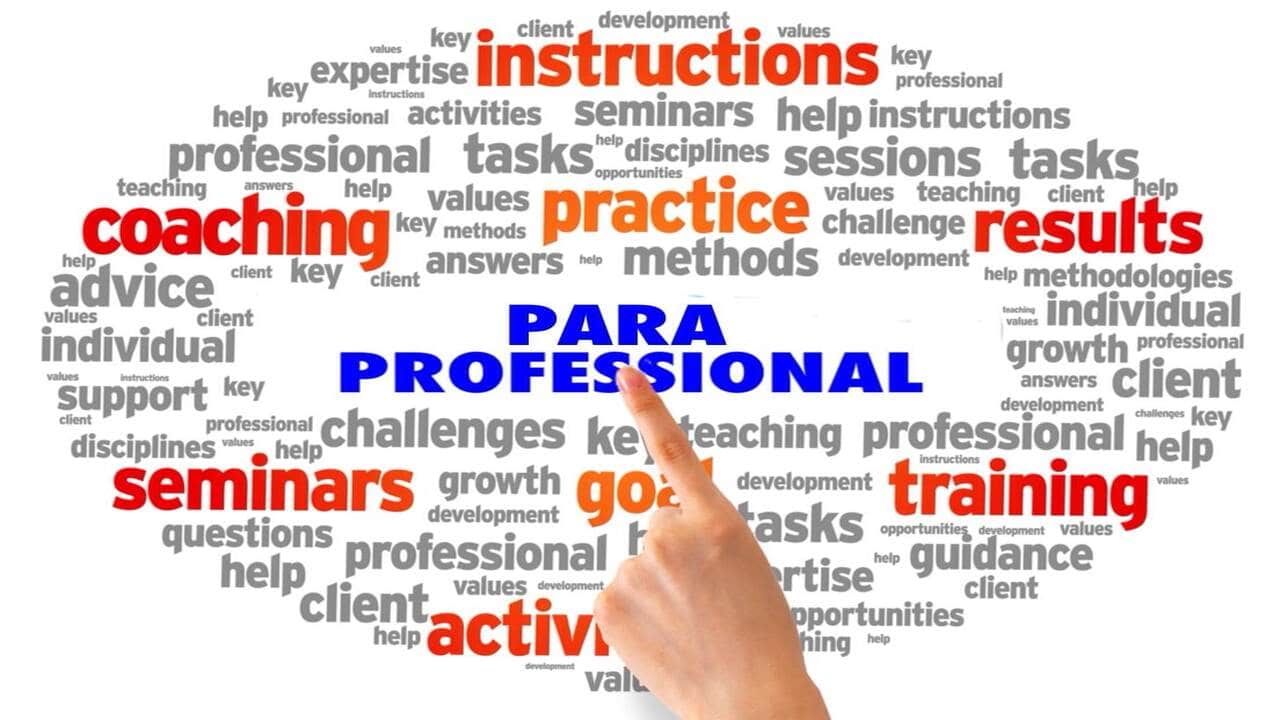Job Description For Paraprofessional In Special Education (Duties And Requirements)
Job Description For Paraprofessional In Special Education: Duties And Requirements. A Paraprofessional, or Educational Assistant, works in the classroom to help elementary and high school students with cognitive, behavioural, or physical disabilities succeed academically.
Paraprofessionals can be found in many other industries, but the term is often associated with education. Paraprofessionals are essential to the success of any classroom. They assist teachers with everything from scheduling programs and implementing curriculum to maintaining a clean environment for students.

Contents
What Is Paraprofessional Teaching?
A paraprofessional is an educational worker without a teacher’s license who assists teachers with classroom management and organization. Also known as a teacher’s aide, the paraprofessional provides a positive and nurturing guide for students and attends to their physical, personal, academic, and emotional needs.
What questions do they ask in a paraprofessional interview?
- How did you learn of this job position?
- What qualifies you to work for our school?
- What are your professional values?
- What are your goals?
- What do you consider your strengths?
- Tell me about yourself.
- Why do you want to work for our school district?
- What do you know about our special needs program?
- What is a weakness you’re currently improving?
- How do you approach team collaboration?
What is the difference between a Paraprofessional and a Teacher Assistant?
A Paraprofessional may help the teacher with certain tasks, but their primary focus is to help students learn in a manner that works for them. They develop learning strategies to contribute to student success. A Teaching Assistant rarely works directly with students. Instead, they assist the teacher in managing their workload by correcting assignments, making photocopies, researching, and preparing class materials.
What does a Paraprofessional do?
A Paraprofessional helps students keep up in a regular classroom despite academic difficulties. This can sometimes include extra resources, special education, and other remedial programs. Paraprofessionals work under the supervision of the teacher to ensure a student with a disability or academic challenge can stay up-to-date with their studies while the teacher continues to teach the rest of the class. Paraprofessionals also offer their students extra training and support outside of school hours through after-school tutoring programs.
What skills are needed to be a paraprofessional?
Paraprofessional duties and responsibilities
- Excellent teamwork skills.
- Ability to remain calm and patient at all times.
- Excellent communication and interpersonal skills.
- Experience with educational software.
- Knowledge of classroom subjects.
- A paraprofessional associate’s degree.
- A bachelor’s degree in child development or a related field may be advantageous.
- Recent first aid and CPR certifications.
- Excellent written and verbal communication.
- Ability to assist in classroom instruction and learning.
- Great attention to detail.
- Ability to work closely with children.
- Experience working with children and special needs students.
Paraprofessional Responsibilities:
- Supervising students in and out of the classroom.
- Attending to students’ physical, personal, academic, and emotional needs.
- Tracking students’ progress and preparing reports for the parents.
- Assisting Teachers in counseling parents on the requirements and development of their children.
- Helping Teachers and students with extracurricular activities and school functions.
- Performing clerical duties, such as tracking student attendance, typing, filing, photocopying, and grading tests and homework.
- Participating in lesson planning sessions, and communicating with parents and school officials.
- Co-teaching lessons under the Teacher’s guidance, leading small groups or individual instruction and discussions, and reviewing classwork.
- Organizing the classroom and teaching materials, monitoring the classroom during lessons, and minimizing distractions and disruptions.
- Ensuring the upkeep of educational materials, equipment, and supplies.
Recommendation
Paraprofessional education and training requirements
A successful Paraprofessional candidate has completed a Bachelor of Education (B. Ed.) and a Teaching Assistant or Educational Assistance college program. Paraprofessionals helping children with special needs also require additional training programs relevant to their specialization. Paraprofessionals with formal training and certification as an Early Childhood Educator or elementary or high school Teacher are well qualified.
Who does a Paraprofessional report to?
A Paraprofessional works under the classroom teacher’s supervision and must report on the students’ progress to the teacher of the class. They must also report to the children’s parents and the school administration. Anyone involved in the child’s academic development relies on regular updates from the class’s Paraprofessional.